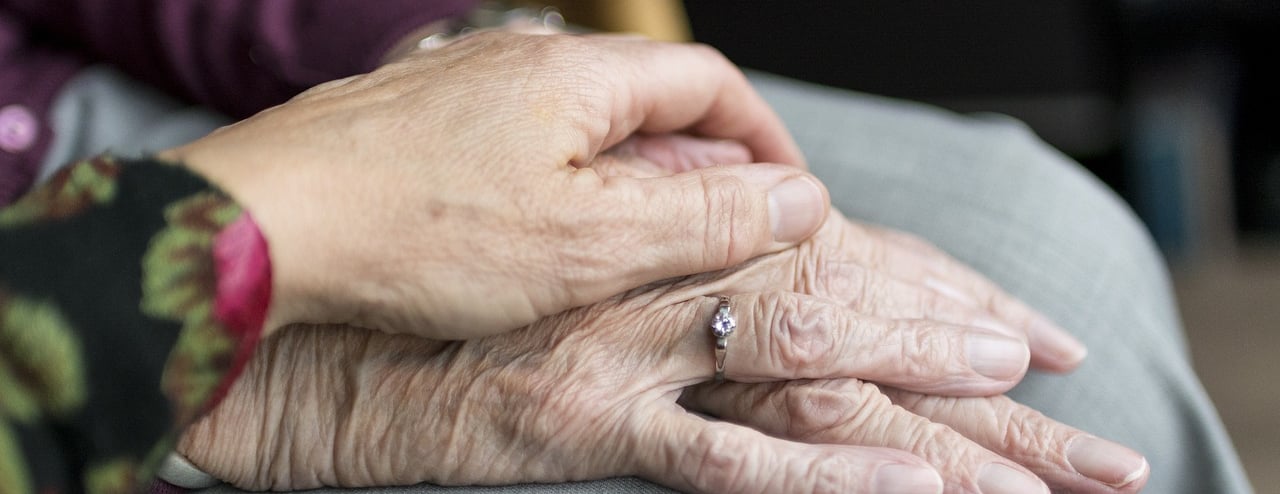"Maintaining Vitality: How to Boost Energy Levels as You Age"
Aging is a natural and inevitable process, but it doesn't mean you have to accept a decline in energy levels as you grow older. In fact, there are several lifestyle changes and habits you can adopt to maintain and even boost your energy as you age. This article explores various strategies that can help you stay vital and energized in your later years.
1. Balanced Nutrition for Sustained Energy
Proper nutrition is the cornerstone of maintaining energy levels as you age. Consider these dietary tips:
• Balanced Diet: Consume a well-rounded diet rich in fruits, vegetables, lean proteins, whole grains, and healthy fats. A variety of nutrients supports your energy needs.
• Hydration: Dehydration can lead to fatigue. Ensure you drink an adequate amount of water daily to stay hydrated.
• Regular Meals: Eat regular, balanced meals to stabilize your blood sugar levels and prevent energy dips.
• Limit Processed Foods: Minimize processed foods and added sugars, which can lead to energy crashes.
• Monitor Portion Sizes: Be mindful of portion sizes to maintain a healthy weight, which can contribute to higher energy levels.
2. Exercise for Endurance
Staying physically active is crucial for maintaining energy and vitality throughout your life. Here's how you can incorporate exercise into your daily routine:
• Aerobic Exercise: Engage in regular aerobic activities like walking, jogging, swimming, or cycling to improve cardiovascular health and boost your stamina.
• Strength Training: Building and maintaining muscle mass can help increase your metabolism and overall strength.
• Flexibility and Balance: Practicing yoga or tai chi can enhance balance and flexibility, reducing the risk of injuries that may sap your energy.
• Consistency: Find an exercise routine that you enjoy and can stick with. Consistency is key to reaping the long-term benefits of physical activity.
3. Prioritize Quality Sleep
Getting enough quality sleep is vital for maintaining energy levels, and it becomes increasingly important as you age. Follow these sleep tips:
• Establish a Routine: Go to bed and wake up at the same time every day to regulate your body's internal clock.
• Create a Comfortable Sleep Environment: Ensure your bedroom is cool, dark, and quiet to promote restful sleep.
• Limit Screen Time: Reduce exposure to screens (phones, computers, TVs) before bedtime to improve sleep quality.
• Manage Stress: Practice relaxation techniques such as meditation, deep breathing, or progressive muscle relaxation to reduce stress and promote better sleep.
• Consult a Professional: If you experience chronic sleep problems, consult a healthcare provider for guidance.
4. Stress Management
Chronic stress can be a significant energy drain. Learning to manage stress effectively is essential for maintaining your vitality as you age:
• Mindfulness and Meditation: Mindfulness practices can help you stay in the present moment and reduce the impact of stress on your energy levels.
• Hobbies and Relaxation: Engage in hobbies or activities that you enjoy, as they can provide a mental break from stressors.
• Social Connections: Maintain a strong social network. Sharing concerns with friends and family can provide emotional support and alleviate stress.
• Counselling or Therapy: If stress becomes overwhelming, consider speaking with a mental health professional for guidance and support.
5. Stay Mentally Active
Keeping your mind active and engaged can significantly impact your energy levels. Here are some strategies to maintain mental vitality:
• Lifelong Learning: Engage in lifelong learning through reading, taking courses, or pursuing new hobbies and interests.
• Puzzles and Brain Games: Activities like puzzles, crosswords, and brain-training games can help keep your mind sharp.
• Social Interaction: Regularly interact with others to engage in stimulating conversations and activities.
• Challenge Yourself: Set new goals and challenges to maintain a sense of purpose and enthusiasm.
6. Regular Health Check-ups
Frequent health check-ups are essential to detect and address any medical issues that might contribute to decreased energy levels. Key considerations include:
• Preventive Care: Keep up with regular check-ups, screenings, and vaccinations to catch potential health issues early.
• Medication Management: Ensure you're taking any prescribed medications as directed and discuss any side effects with your healthcare provider.
• Chronic Conditions: Manage and control chronic conditions such as diabetes, hypertension, and heart disease, which can sap your energy if left untreated.
7. Optimize Hormonal Health
Hormonal changes are a natural part of aging and can affect your energy levels. Consider these strategies:
• Hormone Replacement Therapy: Consult with your healthcare provider about hormone replacement therapy (HRT) if hormonal imbalances are impacting your energy and quality of life.
• Nutrition and Exercise: A balanced diet and regular exercise can help optimize hormonal balance.
• Stress Reduction: Manage stress effectively to prevent it from exacerbating hormonal imbalances.
8. Social Engagement and Emotional Well-being
Maintaining an active social life and strong emotional well-being are integral to sustaining energy and vitality as you age:
• Stay Connected: Regularly spend time with friends and family to maintain emotional support and a sense of belonging.
• Pursue Passions: Continue to engage in activities you're passionate about to maintain a sense of purpose and fulfilment.
• Positive Thinking: Cultivate a positive mindset and focus on gratitude to enhance your emotional well-being.
9. Hydration and Nutritional Supplements
In addition to a balanced diet, consider supplements that may support your energy levels:
• Vitamin B Complex: B vitamins play a role in energy production. A supplement or fortified foods can help if you have a deficiency.
• Vitamin D: Many older adults are deficient in vitamin D, which can affect energy levels. Discuss supplementation with your healthcare provider.
• Iron: An iron supplement may be necessary if you have a documented deficiency, as it can lead to fatigue.
• Coenzyme supplements are thought to support energy production at the cellular level.
Always consult with a healthcare provider before taking any new supplements to ensure they are appropriate for your individual health needs.
10. Set Realistic Expectations
Finally, it's important to set realistic expectations for yourself as you age. Your energy levels may naturally decline, but that doesn't mean you can't maintain a fulfilling and active life. Focus on what you can do and adapt to your changing needs and abilities. Embrace the wisdom and experience that come with aging, and make the most of the energy you have.
Fine words
Aging doesn't have to be synonymous with a decline in energy and vitality. By adopting a holistic approach that includes proper nutrition, regular exercise, quality sleep, stress management, mental stimulation, healthcare check-ups, hormonal balance, social engagement, and the use of supplements when necessary, you can maintain and even boost your energy levels as you age. Embrace the journey of aging with a positive mindset, and you'll find that the later years of life can be just as fulfilling and energetic as the earlier ones.
www.lifethicss.com




